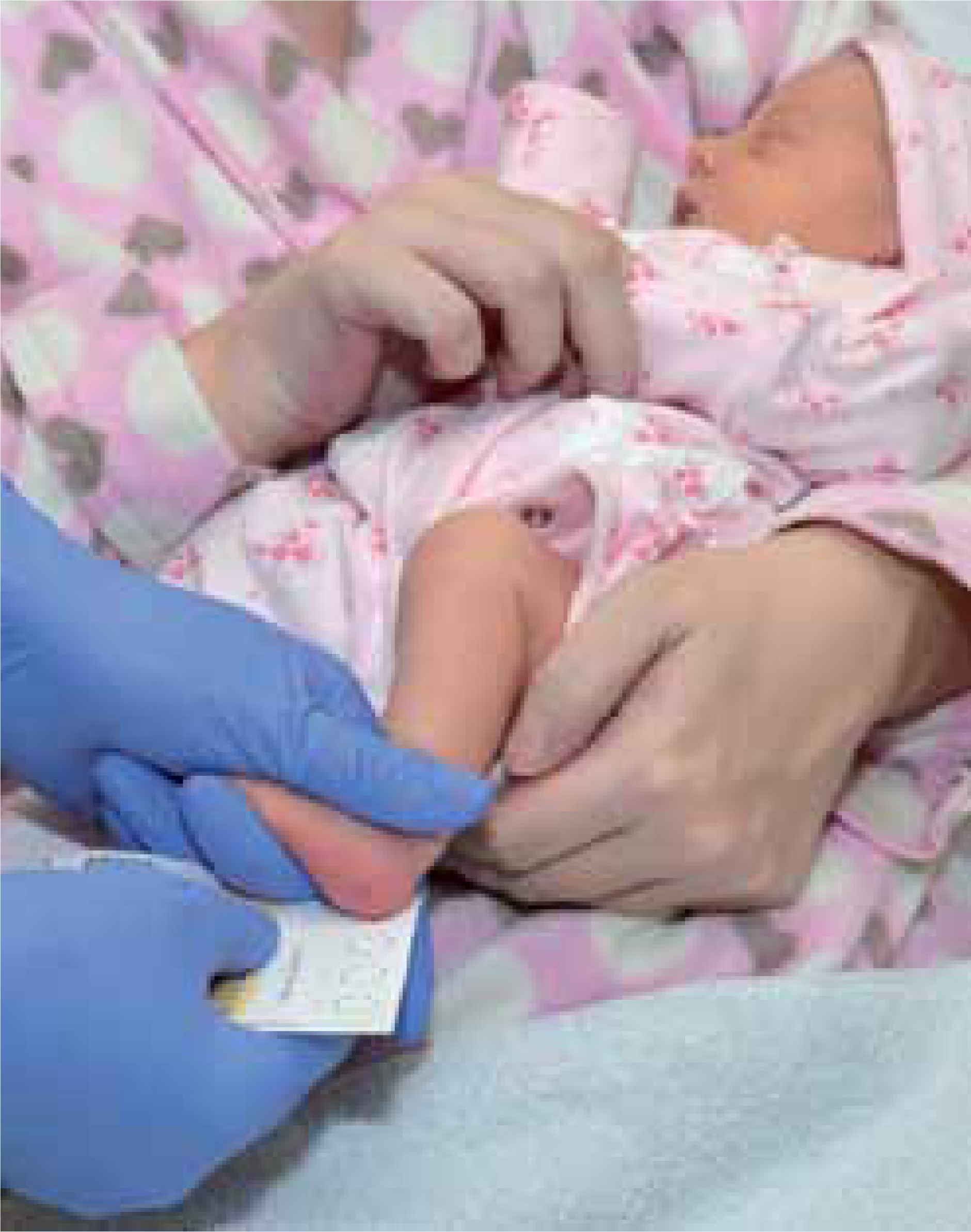From 5 January 2015, the NHS Newborn Blood Spot Screening Programme has been expanded to screen all newborn babies in England for the following rare, but potentially disabling conditions: maple syrup urine disease (MSUD), isovaleric acidaemia (IVA), glutaric aciduria type 1 (GA1) and homocystinuria (HCU).
Testing for these conditions, leading to early detection and treatment, will prevent those babies affected from dying or being severely disabled for the rest of their lives.
The test will be performed using the same blood test that babies currently have at 5–8 days old. This ‘heel prick’ test will be familiar to many midwives and health professionals and is usually taken in the community.
Midwives have been offering this test to newborn babies as part of the NHS Newborn Blood Spot Screening Programme for years and while the same good quality samples are needed, no additional blood is required. The existing conditions screened for through the programme are sickle cell disease (SCD), cystic fibrosis (CF), congenital hypothyroidism (CHT), phenylketonuria (PKU) and medium-chain acyl-CoA dehydrogenase deficiency (MCADD).
The UK National Screening Committee, which recommends which conditions should be screened for in the UK, was able to recommend extending the programme to screen for the additional conditions following the results of a pilot programme, coordinated by Sheffield Children's Hospital NHS Foundation Trust, in partnership with the South Yorkshire Collaboration for Leadership in Applied Health Research and Care. The pilot areas included: Sheffield, Manchester, Leeds, Birmingham and London (Guy's and St Thomas' NHS Foundation Trust and Great Ormond Street Hospital NHS Foundation Trust).
Sixteen-month old Phoenix Thompson from Lincolnshire was diagnosed with GA1 through this pilot programme at Sheffield Children's Hospital. Phoenix's mother, Michelle Thompson, said: ‘It is unexplainable how important the screening was for us. It means Phoenix can receive the care and treatment he needs. It doesn't bear thinking about what would have happened if the condition wasn't picked up early.’
This change will not affect midwives' day-to-day work but it is important that they are aware of what the new conditions are and how screening will help those babies affected and their families.
The additional conditions are very rare (incidence ranges from approximately 1 baby in every 100 000 to 1 baby in every 150 000) and the babies like Phoenix that are affected have problems breaking down the building blocks of proteins normally, leading to a build-up of harmful toxins in their body.
If these conditions are not picked up early, they almost always cause severe developmental problems, including serious mental disability and possibly coma, or even death.
These conditions require lifelong management through special diets and in some cases, supplementary vitamins or medicines. But early, well-managed treatment following early detection means these babies can live normal, healthy lives.
Testing for the six inherited metabolic diseases (PKU, MCADD, MSUD, IVA, GA1 and HCU) can be declined by the parent, but only as a group of all six together and not as individual conditions, and like with the existing disorders, parents can expect to receive normal results within 6-8 weeks.
Like PKU and MCADD, the additional disorders are all autosomal recessive inherited metabolic diseases and so parents may understandably have questions over what this could mean for future pregnancies (a new sibling born to parents with an affected child has a 1 in 4 chance of having the same condition). In addition to routine day 5 testing, new siblings can be tested earlier to avoid delays in diagnosis and to allay parental anxiety.

The NHS Newborn Blood Spot Screening Programme has worked with colleagues across screening to develop online learning resources including leaflets and videos which are free to access any time from the programme website: www.newbornbloodspot.screening.nhs.uk/elearning.
A separate online learning module on improving the quality of blood spot samples will be available shortly at: www.newbornbloodspot.screening.nhs.uk/avoidable-repeats-elearning.
Finally, patient information on the new conditions is also available in the updated ‘Screening Tests for You and Your Baby’ leaflet: www.screening.nhs.uk/annbpublications.

